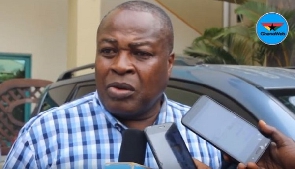Accra, May 24, GNA - Government is strengthening the capital market through the provision of adequate infrastructure, a favourable tax environment and a strong regulatory framework, Professor George Gyan-Baffour, Deputy Minister of Finance and Economic Planning, said on Wednesday.
He announced that the issuance of medium-term instruments would be listed soon on the Ghana Stock Market by extending the yield curve. Prof. Gyan-Baffour said at the opening of a three-day training workshop for Capital Market Regulators in Anglophone West Africa that government was also assisting the Ghana Stock Exchange to automate its trading by the end of this year.
"Our firms need dynamic and innovative capital markets to provide the necessary finance to grow their businesses. Efficient capital market will be key to our private sector-driven accelerated growth strategy." He said government was further reviewing the Companies' Code to make it better suited for the current investment world.
Prof. Baffour said, "We want our Companies Code to reflect that fact that a limited liability company is a vehicle for creating economic activity by which people can join to accomplish economic goals they could not accomplish as individuals."
The Minister said for markets to function properly, there was the need for adherence to sound regulatory principles and enforcement. "We need to recognize the importance of effective enforcement in contributing to trust and confidence in markets and we need to ensure that our system provides a real deterrent against unethical conduct and corporate misbehaviour."
Prof. Baffour mentioned the establishment of commercial courts in Ghana as a good start and proposed the institution of a financial intelligence unit to check offences.
He urged companies to have strong corporate governance and accountable management and called on auditors to be independent and put effective oversight procedures in place, saying, "the audit process must be credible."
Achieving capital market integration and establishing a second monetary zone in West Africa were other challenges he mentioned, while naming harmonization of trading, clearing and settlement and regulatory frameworks for securities markets throughout the sub-region as tasks that needed to be solved.
Prof. Gyan-Baffour said there was the need for West African securities regulators to forge ahead with harmonization. "Collectively, we must build capital markets that will excel in the long term while serving the interests of our people and our businesses."
Mr Augustine Fosu, Director of Economic Commission for Africa of the United Nations, said the development and well functioning of capital markets were crucial tools in boosting sustainable growth on the continent.
He identified shortage of financial technocrats and absence of training institutions as limits to development of securities market especially in emerging small African economies.
"To increase the impetus for capital market on the continent, the UN and its African partners have been increasing educational activities, creating public awareness, supporting the development institutional investors and training key market players," Mr Fosu said. 24 May 06
Click to view details



Business News of Wednesday, 24 May 2006
Source: GNA
















